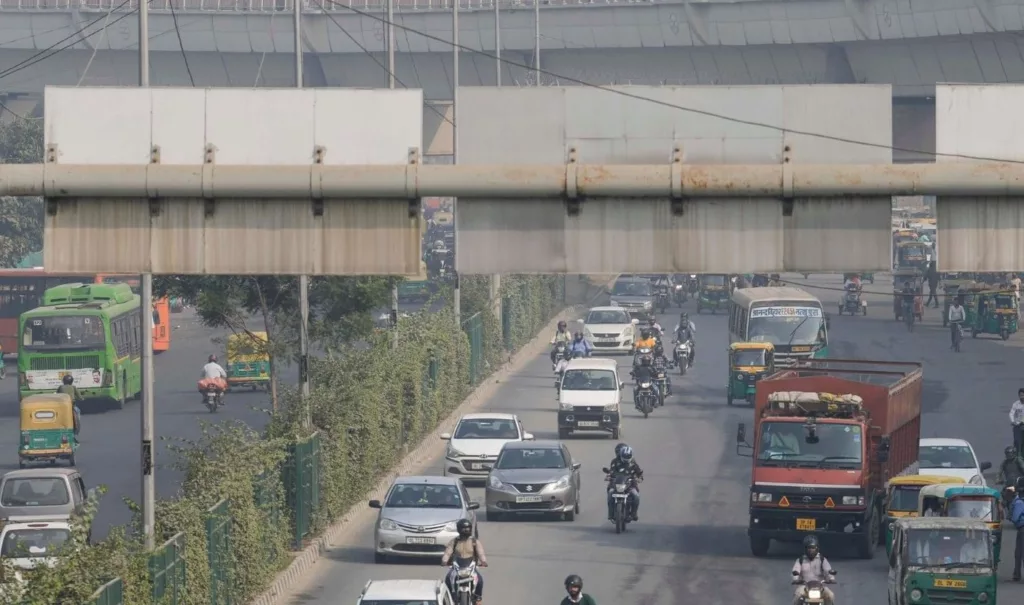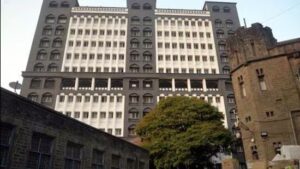Delhi Government bans diesel vehicles; next 15 days crucial

Delhi Government bans diesel vehicles; next 15 days crucial
By: Pune Pulse
November 2, 2023
Pune: The Delhi government has recently implemented certain measures to address the deteriorating air quality. These measures include a ban on diesel buses from Haryana and an increase in the number of CNG buses.
According to Delhi’s environment minister, Gopal Rai, the next two weeks are crucial for the city due to a drop in temperatures and calm winds. The air quality index in Delhi has consistently remained around 350 in the past few days, which meteorologists attribute to prevailing weather conditions.
The minister informed that these conditions are expected to persist, making the next two weeks critical for Delhi. The air quality in the national capital has been categorized as ‘very poor’ for five consecutive days, with an air quality index of 372 at 10 a.m., the highest recorded this season. Additionally, certain areas in Delhi, such as Anand Vihar, Bawana, and Rohini, have entered the ‘severe’ category in terms of air pollution.
The air quality in Delhi has been deteriorating rapidly, with the 24-hour average AQI reaching 359 on Tuesday (October 31). The AQI was 347 on Monday (October 30), 325 on Sunday (October 29), 304 on Saturday (October 28) and 261 on Friday (October 27). Several areas within the city, including Nehru Nagar, Sonia Vihar, Rohini, Wazirpur, Bawana, Mundka, Anand Vihar, and New Moti Bagh, have experienced a drastic deterioration in air quality, with AQI levels exceeding 400 in some areas.
The government has announced a ban on construction work in areas recording an AQI above the 400 mark for the next five days. The Delhi government has also issued directives to all departments and resident welfare associations to distribute heaters to security guards to prevent biomass burning. The minister has instructed nodal officers to ensure strict enforcement of air pollution control measures in such areas.
At least 1,000 private CNG buses will be contracted to enhance public transportation and mitigate vehicular pollution. Additionally, the Municipal Corporation of Delhi (MCD) has been instructed to incorporate dust suppressants in water sprinklers to control dust pollution. It has been mandated that only electric, CNG, and BS-VI diesel buses are permitted to enter Delhi, as directed by the Commission for Air Quality Management (CAQM).
To ensure compliance, a total of 18 teams have been established. The transport department has issued a circular to Haryana, Uttar Pradesh, and Rajasthan, outlining the guidelines for buses. Furthermore, starting from July 1 of the following year, all buses arriving in Delhi from any city or town in Haryana, Rajasthan, and Uttar Pradesh must exclusively be electric, CNG, or BS-VI diesel vehicles.
The Motor Vehicles Act, 1988, stipulates that any deviation from the provisions mentioned in the circular will be considered a violation. In such cases, action may be taken under the Act. To ensure compliance, the department has stationed 18 enforcement teams at border points. These teams will check whether the buses entering the capital are adhering to the prescribed norms. To combat air pollution, the MCD has allocated Rs 20 lakh per zone. This funding will be used to implement measures aimed at improving air quality over the next three days.
The civic body plans to strengthen its machinery and manpower to mitigate dust pollution. The allocated funds will be utilized to make sprinklers functional and hire drivers. Additionally, all zones will ensure the efficient operation of anti-smog guns and manpower within their respective jurisdictions.
Furthermore, the MCD will focus on clearing garbage along railway tracks by deploying machinery and manpower. Dust suppressants will be purchased and sprayed using anti-smog guns and water sprinklers at least every alternate day during non-peak hours. The MCD has also decided to enforce strict regulations on construction activities and the dumping of demolition waste.
The BCCI has taken into account the poor air quality in Delhi and Mumbai and has decided to prohibit the display of fireworks during the remaining World Cup games. This ban will be in effect for the Bangladesh-Sri Lanka game on November 6 in Delhi, as well as for the remaining games in Mumbai.
The BCCI is dedicated to addressing environmental concerns and ensuring the well-being of our fans and stakeholders. BCCI secretary Jay Shah emphasized the organization’s commitment to prioritizing the health and safety of all involved while still striving to host the ICC World Cup in a manner that reflects the spirit of cricket.
The Delhi High Court told the forest department it was responsible for the capital’s air quality and must take steps to ensure that the AQI improves.
Justice Jasmeet Singh, in addressing the issues of establishing an alternative forest in Delhi and addressing the vacancies within the department, expressed concern over the detrimental effects of breathing polluted air on children, particularly in relation to asthma. The court highlighted the encroachment occurring in the ridge area, which is considered to be the lungs of the national capital, and emphasized that this encroachment was happening right under the supervision of government officials.
In an effort to address these concerns, the court directed the principal secretary of the forest department to urgently fill the vacant positions. The court emphasized that the responsibility for ensuring the quality of the air we breathe lies with the forest department, and it is their obligation to take necessary measures to improve the Air Quality Index (AQI).
The court further highlighted the prevalence of breathing problems among children and emphasized the importance of December-January as a favorable time for residents to stay in Delhi, rather than having to travel elsewhere due to poor air quality. The court stressed that the residents of Delhi have a fundamental right to clean air and emphasized the role of greenery in achieving this.
A day subsequent to the Supreme Court’s instruction, the governments of Delhi, Punjab, Haryana, Uttar Pradesh, and Rajasthan were directed to submit affidavits detailing the measures they have undertaken to address air pollution. Despite the Central Pollution Control Board’s efforts, the court acknowledged that air pollution continues to persist in the national capital. The court further remarked that Delhi, which was once considered the best time to be in, is now plagued by deteriorating air quality, making it challenging to venture outdoors. Justice SK Kaul, leading a three-judge bench, ordered the aforementioned states to file their affidavits within a week. Additionally, the Supreme Court instructed the Central Air Quality Monitoring Committee to present a tabulated report outlining the historical onset of the problem and the current ground situation, encompassing parameters such as the Air Quality Index (AQI) and the frequency of farm fires.








